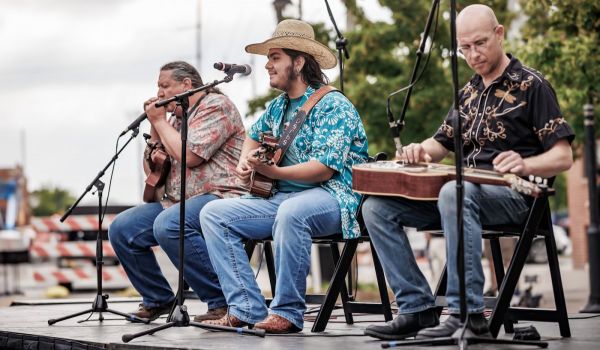We’re lucky to be living in a golden age of podcasts, with a seemingly endless supply of new shows. Whether someone wants to listen to a dense history lesson or a light-hearted conversation about comedians’ dream meals, there’s a podcast out there for them. Luckily, that’s just as true for urbanists who want to take a deeper dive into the many topics that shape urban life — from criminal justice to livable streets — or who even just want to nerd out about transit.
In that spirit, here are 11 podcasts to keep you informed, make you smarter and, of course, entertain you. Hopefully you have some solid speakers or headphones handy — because you have a whole lot of listening to do.
The War on Cars
The War On Cars, co-hosted by Doug Gordon, Sarah Goodyear and Aaron Naparstek, advocates for livable streets and examines the intermingling between car culture and city life. In each 30- to 40-minute episode, the trio touches on developments pertaining to cars’ stranglehold on city planning and alternative ideas that could lead to safer, healthier and happier neighborhoods.
Every episode is interesting, but any Ray Bradbury fans out there should especially consider listening to The Pedestrian. The episode looks back at the author’s dystopian science-fiction story about the decline of walking amidst the rise of cars and features a conversation with four thought leaders about the benefits of walking and the societal costs of environments that restrict people’s ability to walk. One recent episode features a great conversation with New York Times contributor Jody Rosen about his new book and the bicycle’s status as the world’s preeminent vehicle.
Ear Hustle, from Radiotopia
The first podcast produced inside a prison, Ear Hustle focuses on the stories and daily lives of people living at California’s San Quentin State Prison and individuals who are building new lives post-incarceration. Co-created and co-hosted by Nigel Poor, a visual artist who works with incarcerated individuals at San Quentin, and current inmates Earlonne Woods and Antwan Williams, Ear Hustle gives listeners a unique insight into the realities of the American prison system.
Featuring interviews with other inmates and conversations about how people transition into or out of incarceration, each episode is nuanced and shows life inside prison from a different angle. Standout episodes include Yard of Dreams, an entertaining look at how sports impact prisoners’ day-to-day lives, and What is This, an exploration of how incarcerated individuals deal with a lack of sexual and romantic intimacy while in prison and what that often does to their relationships with others after being released.
Our Body Politic
Hosted by Farai Chideya, a journalist who has worked at organizations like NPR and The Intercept, Our Body Politic explores key political developments and how these events impact and are actively shaped by women of color. Released every Friday, episodes are typically a little less than an hour long and feature interviews that are designed to inspire listeners to approach the following week with a firm understanding of what’s going on and how they can impact their communities. The most recent episode is a great place for new listeners to start as it features a compilation of a few different past interviews that touch on the various ways people find or create joy in their lives.
Episodes of note for Next City readers include one about the destructive effects of racial violence after the deadly shooting in Buffalo, New York, and another that reexamines the Dakota Access Pipeline protests of 2016-2017 and the power of indigenous activism around the world.
99% Invisible, from Radiotopia
With nearly 500 episodes in its catalog, 99% Invisible has become an institution in the world of podcasting. Hosted by Roman Mars, the show explores the hidden design choices that create the world and structures around us. Examining everything from the dearth of complex middle-class housing options to the best ways to improve peoples’ experience riding the bus, the series does a fantastic job at intermixing complex topics and personal narratives to drive each episode forward.
99% Invisible was included in our 2017 podcast roundup, but it deserves even more recognition for the fantastic content it has been consistently putting out over the last five years. New listeners should consider checking out According to Need, a five-part documentary that investigates why the rate of homelessness has increased so much in California’s Bay Area and the restrictions the state has put in place that ultimately harm rather than help those who are most vulnerable. For people who want to scour the show’s extensive backlog, the 99% Invisible team curated a list of 15 episodes that are a good place to start.
Tangible Remnants, from Gābl Media
Featuring interesting analysis and interviews about the links between preservation, sustainability, architecture, race and gender, Tangible Remnants is a podcast about the history that shapes our neighborhoods and the people who are currently trying to change the way certain environments are being built. Hosted by Nakita Reed, a sustainable preservation architect, most episodes last between 30 and 45 minutes and, rather than sound like a lecture, allow Reed’s own passion for the topic to shine through in each conversation.
The most recent episode features a great conversation with Dr. Kendall Nicholson and touches on the way architects are often influenced by the preferences of their ancestors and the overall need for more empathy in modern society. Other episodes of note include Layers of Colonialism, a look at how St. Lucia’s history of colonialism and current tourism economy impacts the preservation of cultural heritage, and Breaking Down Siloes, a deep dive into the best ways to include existing and historic buildings in the conversation about climate action that is currently reshaping communities around the world.
Talking Headways and Mondays at the Overhead Wire, from Streetsblog
Talking Headways and Mondays at the Overhead Wire are two weekly podcasts that focus on the intersection between transportation and urban design. Both shows are affiliated with Streetsblog, but Talking Headways came first and typically features in-depth conversations about new developments and alternative ideas in the world of sustainable and transportation-conscious city planning. Episodes of note include one on the best ways to measure transportation insecurity — including why there is not currently a federal measurement program that does this- and another on how city planners should incorporate more pedestrian lighting to create safer and more comfortable communities.
Hosted by Jeff Wood, a core member of the Talking Headways team, Mondays at the Overhead Wire is closer to a weekly rundown of key topics pertaining to transportation and environmental issues. Episodes are typically 30-minutes but they can also last a full hour depending on how much news there is to cover that week. The most recent episode featured a conversation about the White House’s new housing plans and the development of a new bus system in Boston among other topics.
City Climate Corner
Co-hosted by Abby Finis and Larry Kraft, City Climate Corner highlights how different cities across the U.S. are adapting to climate change and becoming more sustainable in 30-45 minute episodes. City initiatives like Ann Arbor, Michigan’s push to become carbon neutral by 2030 and Fremont, California’s utilization of microgrids to power three fire stations are given the spotlight and remind listeners just how many creative solutions are out there to address the overwhelming problem that is climate change.
With summer approaching, one episode that may be of particular interest is all about how Tempe, Arizona, is adapting to extreme heat — the city averages 100 days per year with temperatures above 100 degrees Fahrenheit — and what kind of changes to the environment can be made to reduce the burden of the heat island effect.
Raci$m Is Profitable
Raci$m Is Profitable, hosted by and geared toward people of color, is a project of Liberation in a Generation Action. (Their sister organization, Liberation in a Generation, is Next City’s partner in publishing the Hear Us op-ed series.) Researchers, activists and policy experts talk with co-hosts Solana Rice and Jeremie Greer about the structurally oppressive forces that uphold institutional racism.
Topics include the toxic fallacy of poverty-as-personal-failing and interrogating the notions of citizenship and “who belongs.” Next City readers should tune into a recent standout episode with Demos President Taifa Butler that asks the crucial question: What if we redefined the relationship between elected officials and movements? These truth-bomb episodes will have you questioning the way things are and pushing back on narratives that impede our collective liberation.
The Urbanist, from Monocle 24
In each 30-minute episode, The Urbanist touches on policies and ideas from around the world on how to improve city living for everyone. Hosted by Andrew Tuck, Monocle 24’s founding editor, each episode is broken down into digestible chapters that frame the overall conversation while allowing certain aspects of a topic to shine through. A good example of this is the final chapter in one of my personal favorite episodes, Europe’s cycling revolution, as it narrows in on the success that is Copenhagen’s current pro-biking system that now sees around 50% of people bike to work or school in the city.
As we collectively grapple with what COVID-19 will continue to mean for us moving forward, the episode Past pandemics and future cities is absolutely worth checking out. Next City readers who want to sample the show with a “lighter” episode should consider listening to Farming in the City, a look at recent urban agriculture developments and the myriad of environmental benefits that come about when people reduce the distance between where food is produced and consumed.
Cooperative Journal Podcast, from Cooperative Journal Media
This one may be of particular interest to our Bottom Line newsletter subscribers. Hosted by Ebony Joy, the Cooperative Journal Podcast examines how people around the world are challenging current economic structures. Typically released every other week, each episode includes interviews with activists and organization leaders who are currently out there fighting to create safer and more equitable communities.
Episodes last anywhere from 45 to 90 minutes and touch on compelling topics like the Okionu Birth Foundation’s efforts to build a multi-state postpartum support network and a cohabitation experiment in Austria that sees students, refugees and former homeless individuals all live and participate in various workshops together. The most recent episode features a conversation with the Post Growth Institutes’s Director of Education and touches on interesting subjects like the need for mutual aid over profit-driven economic structures and how to create spaces of belonging.
Intersectionality Matters!, from the African American Policy Forum
An interview show that examines important topics like Justice Ruth Bader Ginsburg’s legacy to the racial sentiments that fed into the January 6th insurrection, Intersectionality Matters! is a fascinating series that helps unpack the hidden dimensions of major societal problems for its listeners. Hosted by scholar and civil rights advocate Kimberlé Crenshaw, episodes typically last between 45 and 65 minutes and do a good job at making complex conversations feel accessible for listeners who may not be up-to-date on current events.
Typically there are new episodes released every month, but occasionally the gap between episodes stretches on a bit longer — giving interested listeners a perfect opportunity to dive into the series’ backlog. One standout episode is Educators Ungagged: Teaching Truth in the Era of Racial Backlash, which features a panel discussion with academics and teachers about their experience incorporating anti-racist materials into their curriculum and the harsh criticism they often receive as a result of teaching students about race and gender in America.
Bonus listen: The Next City Podcast, from Next City
We know we said there were 11 podcasts, but if you’re reading this, there’s a decent chance you want even more Next City content in your life. If so, we have a shameless plug for you: Join our executive director, Lucas Grindley, each week as he explores an overlooked issue in the world of urban development. Expect some familiar names of Next City contributors to appear as guests, as well as notable trailblazers improving city life across the country (and, occasionally, the globe). As Grindley says at the beginning of each episode, “this is a podcast about changemakers and their stories,” and we hope the series inspires you to create some kind of change in your city as well.
Nick Kazden is a Los Angeles native who covers everything from pop culture to the cannabis industry.

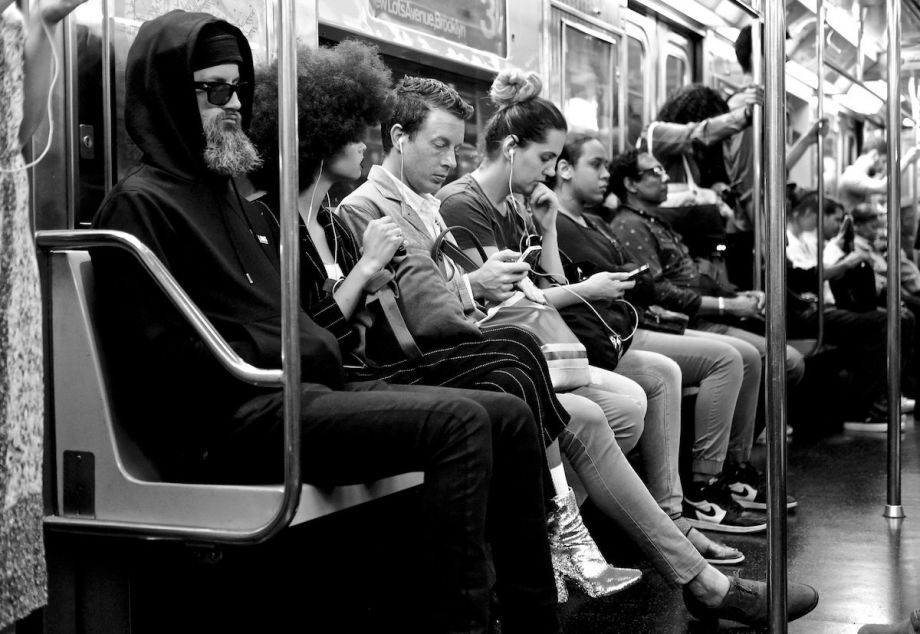
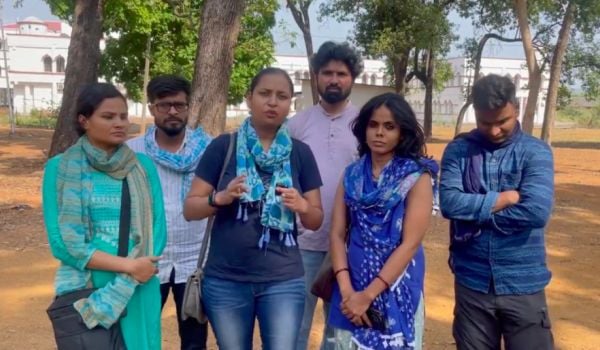
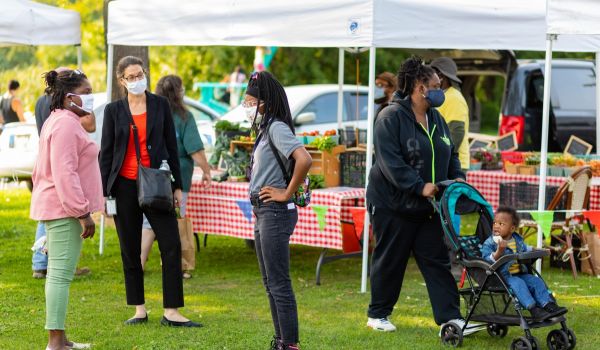
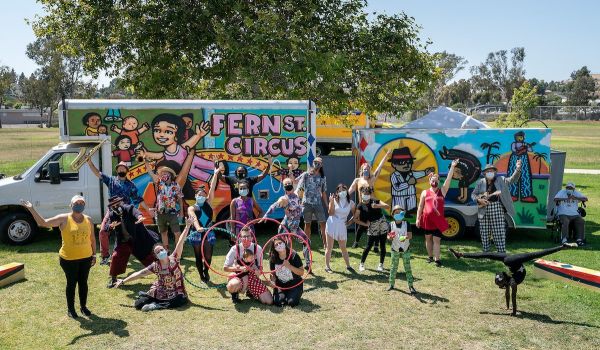
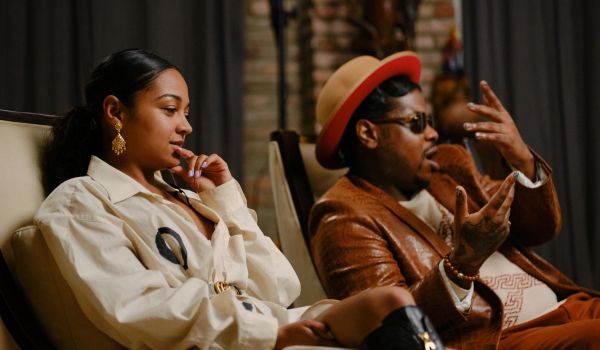
_920_518_600_350_80_s_c1.jpg)

